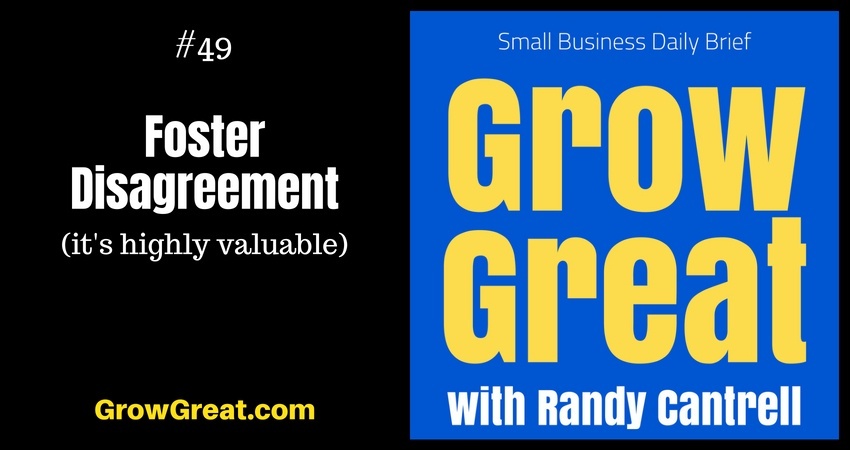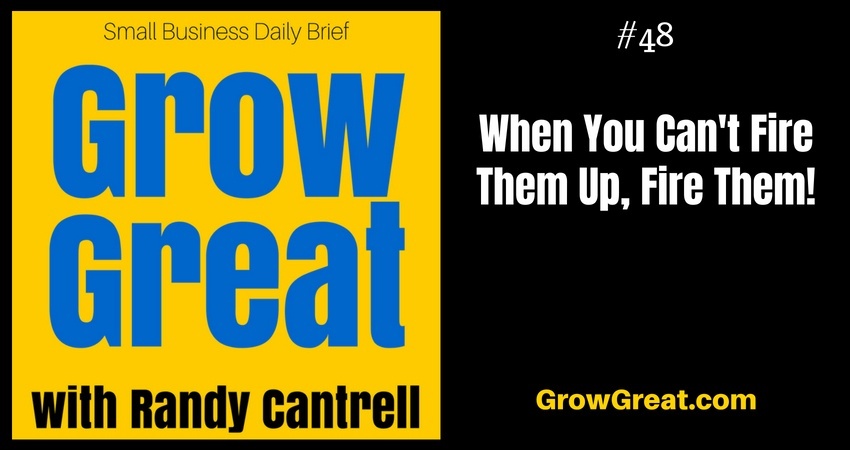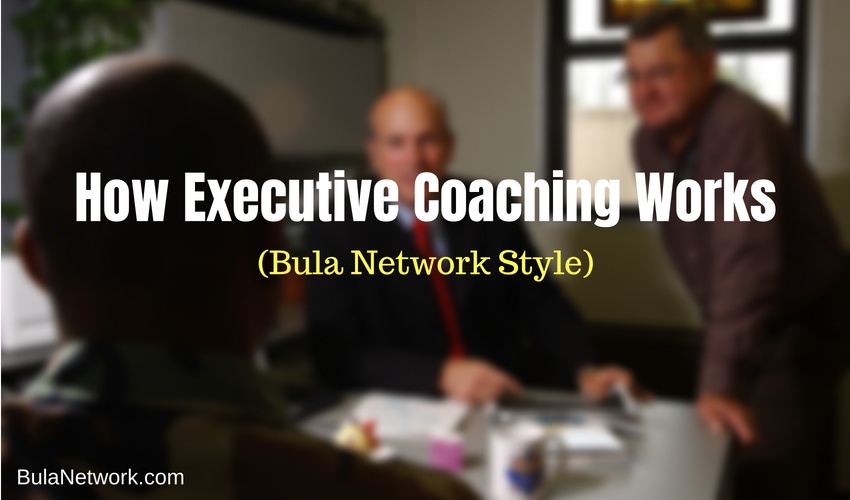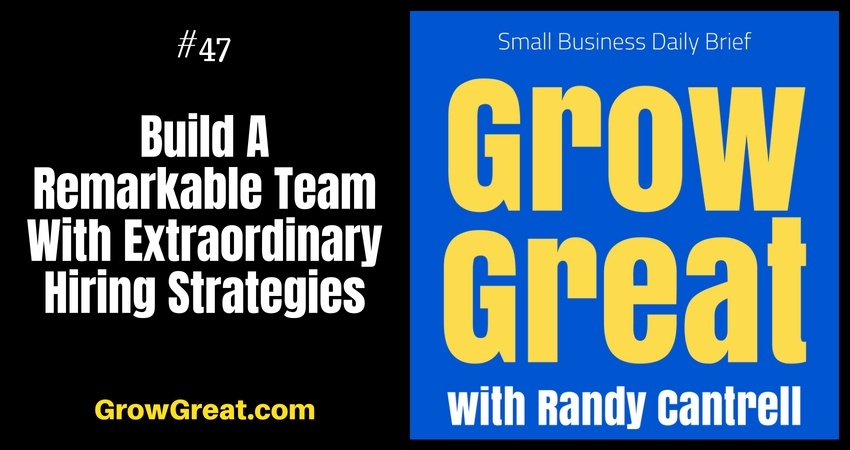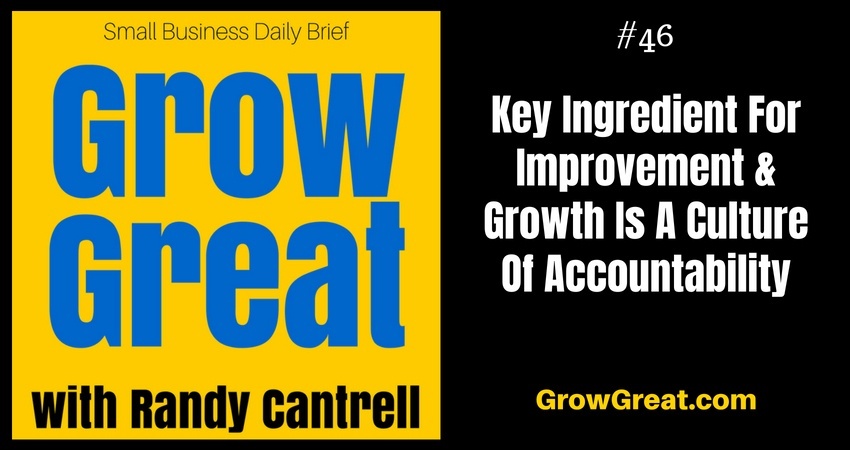How To Accept Criticism – Grow Great Small Business Daily Brief #50 – July 31, 2018
Podcast: Play in new window | Download (Duration: 14:09 — 13.5MB)
Subscribe: Apple Podcasts | Spotify | Email | RSS | More
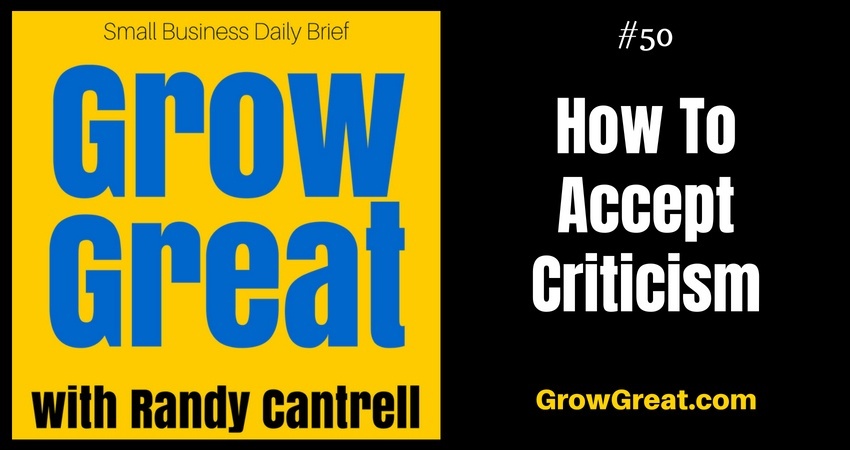
I thought about first diving into how to deliver criticism, but getting criticism is much more universal. Not all of us are prone to give it. All of us are experienced in getting it though.
Here are 3 critical considerations:
- Who gives it. Do we respect this person? Do we trust them? Do they have honorable motives? Are they trying to be helpful or hurtful?
- How they give it. Is it caustic? Does it have any compassion in it? Is the timing appropriate? Is it more about them, and less about helping us?
- What they give. Do they accurately understand us? Are they being fair? Is it congruent with our strengths? Are they extending appropriate grace?
People who take action are going to be criticized. I grew up hearing folks offer this bit of wisdom. Only the people who do nothing avoid criticism. But that’s not really true because they get criticized for doing nothing. Life has taught me they likely receive less than those of us trying to accomplish something. Mostly because the folks doing nothing have time and opportunity to be part of the critical crowd. Mark it down…there are always going to be more people armed with rocks than those of us dodging the rocks. Quite simply, we’re outnumbered. That’s why I’ve owned a particular joke domain for years, SurroundedByNinnies.com. 😀
Criticism stings. We prefer to think the best of ourselves and what we’re doing. Now we may second-guess ourselves. Self-criticism can be the harshest of all, but because it’s self-inflicted we’re okay with it. I can talk about my family, but you’d better not dare say anything negative. It’s like that.
I’m not a big fan of the term, “criticism” but I don’t prefer the political correctness of being overly polite. Wisdom requires good filters, but things are clearly out of hand when we can’t just say what we mean and mean what we say for fear somebody is going to…a’hem, criticize us! Feedback is a more polite word and I intentionally avoided using it.
Criticism is simply a review, an observation, an analysis, an evaluation of something. Yes, we mostly think of criticism as being negative, but even perceived negative criticism can have a profoundly positive impact.
I was 16 years old working in a hi-fi stereo store. The company sold stereo gear on one side the store and photography gear on the other. Separate sales staffs. I was on the stereo side. The store was opening a brand new location at the new mall opening up. For the grand open it was all hands on deck and those of us working at the mothership store were dispatched to go help. Crowds were big and it was a fun time. I greeted an older man who entered the store. He asked about some specific camera gear. I told him I didn’t work in that department but invited him to follow me and we’d find out the answer to his question. Across the store, I spotted Don, the General Manager of the company, my boss. I said to Don, “This guy is looking for X, do we carry that?” Don said, “I’ll be happy to help you,” and away they went.
I continued to help other people. At some point when I was free and Don was free he motioned me to come toward him. He asked me to follow him to the stock room. I sensed something may be wrong. Don was always very calm and respectful. As a boss, I knew his intentions were always to help me. He said, “Randy, do you remember bringing me the customer looking for X?” I said I did remember. “Do you remember what you said?” Now my brain was racing. I was going over the entire thing as quickly as I could. I knew I had made some mistake, but for the life of me, I had no idea what I had done. Don said, “Our shoppers are ‘gentlemen’ not ‘guys.'” And BAM! There it was. I had approached Don and said, “This guy is looking for X.” I should have said, “This gentleman is looking for X.”
Don said, “Just remember that.” And that was over 40 years ago. I just told you, proving I never forgot it.
If I put Don’s criticism to the test, it passes with flying colors. I respected him and he respected me. I trusted him. He was trying to help me improve. He wasn’t trying to hurt me. He wasn’t caustic or harsh. He waited until both of us were free. He took me into a private space. He had accurately assessed the event. He was fair and didn’t misrepresent what I said, or did. He was gracious.
Yes, I felt foolish. I knew better. I always said ‘sir’ and ‘ma’am’ to shoppers. I always thanked shoppers. Don knew I was polite and respectful. But at that moment I didn’t think about my word choice. That word choice was important to Don and the reputation he wanted our stores to earn. It immediately resonated and made sense to me.
Hundreds of retail employees have heard me recite that story and train them in a similar fashion. Perhaps it seems like too small of a detail, but it’s a powerful difference – a guy versus a gentleman.
What if Don was a jerk, somebody I didn’t respect? It probably would have gone much differently. And I would have run the risk of losing out on a great lesson that would have helped me.
Let’s start with our 3 critical components and permit me to make a suggestion on how you can improve accepting criticism. Start with that 3rd thing – WHAT. Instead of focusing on who and how to focus on the what because that’s where the value is if there is any. And I’m not saying all criticism has value. But we can put it to the test.
Jerry Jones owns the Dallas Cowboys. His son, Stephen is a VP and was being interviewed last week about the team. During the interview, he remarked that they were hopeful quarterback Dak Prescott would have his best year yet. Last year, Stephen said, Dez Bryant (a wide receiver who is no longer on the team) and Jason Witten (a tight end who retired to join Monday Night Football for ESPN) were in Dak’s ear, as most stars are who want the quarterback to throw them the ball. It wasn’t a disparaging remark in the least, but the ninnies on Twitter started throwing gasoline in the fire as though Stephen Jones was dissing Dez Bryant, who has yet to land with any team. Dez went scorched earth and began a litany of Tweets toward the Cowboys and his old teammates. It was pretty clear Dez didn’t even hear what Stephen said. If he had focused on the WHAT, he may have avoided making a fool of himself. Maybe not, but he could have at least given himself the chance to behave with more wisdom.
“You suck,” is a common blunt “criticism” we hear. WHAT is really being said? Nothing. Absolutely nothing. So it doesn’t pass the WHAT test. That means it’s best to dismiss it. Ignore it and move on.
Sometimes the WHAT is more precise though and it can be tough to know what to do with it. A person approaches us and begins to make suggestions on how we could have better handles a meeting or presentation. They may say, “That third slide was a bit confusing. Fewer words on a single slide may have been more impactful or splitting that slide up into about 3 so it wasn’t quite so busy.” Don’t jump to component number 1, WHO. This is where we often miss the value of criticism that could help us. We instantly get overly emotional and think, “Who are you to tell me anything?” Instead, discipline yourself to stay focused on WHAT is being suggested.
Listen. Without being defensive. Just listen. Ask questions to get clarification if necessary. Solicit more details if you want. But remain attuned to WHAT.
“How do you think I might have made that 3rd slide more impactful?” Don’t be snotty. Be genuine. WHAT they tell you may be valid. It may not be. But you won’t know until or unless you understand their criticism. Get whatever details they’re willing to offer.
Thank them. That’s not consenting that you agree. Nor is it defensive so they know you disagree. It’s gracious and polite, which is what you want from them. Even if they don’t give it, your job is to be the leader. Show the way.
Give yourself time. You can weigh whether or not their feedback helps you or not. It’s just their observation, but it may be valid. It may not be. No reason to disregard it though until you’ve considered what you want to do with it. Give yourself the opportunity to use it for your own benefit.
For you, the only gauge should be whether or not you agree that their feedback can be used for your own improvement. Don’t get clouded with extraneous details. It doesn’t matter if they love you or hate you. If they have an ax to grind with you, or not. It doesn’t matter if they gave you the feedback with a less than gracious tone. Look past all that to concentrate on making the WHAT of it is worthy of some consideration. If it’s not, fine. But if it is, then you’ve just chosen to find improvement you may not have otherwise experienced.
Lastly, don’t get angry. And if you do, don’t show it. It won’t help you. This is about you growing great. Anger doesn’t fuel greatness…well, at least that kind doesn’t.
Instead, embrace level-headed conversation and dialogue. Listen to help yourself! The objective is for you to remain focused on how you can best benefit from this criticism, or to determine if you can. Pitch everything else aside and forget it because it doesn’t serve you.
Remember, how you choose to feel or think is entirely up to you. Don’t acquiesce that to the person offering you criticism. Own your own thoughts and feelings by taking control of them.
Be well. Do good. Grow great!

Listen to the podcast
How To Accept Criticism – Grow Great Small Business Daily Brief #50 – July 31, 2018 Read More »


